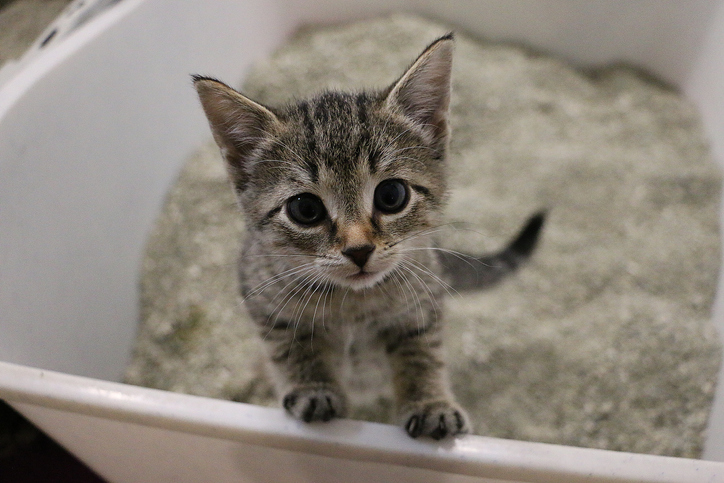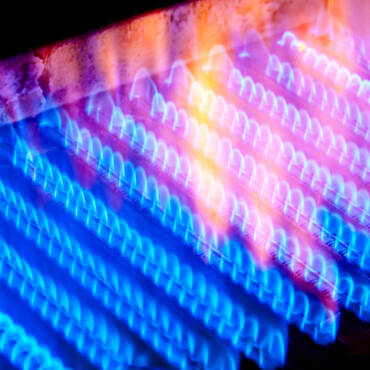Perhaps you’ve noticed the smell when you walk into your home, or maybe you’ve seen guests wrinkle their noses just the slightest bit when entering your house. Maybe your child has had a nagging cough for a few weeks. Or maybe you’ve been comparing energy bills and seeing a gradual upward trend in costs, or you’re calling Maertin Heating & Cooling to your home more frequently than usual.
Whatever has made you stop and think, the location of your cat’s litter box could be to blame.
Many cat owners tuck litter boxes out of sight, and that “out of sight” is frequently near HVAC equipment. Unfortunately, the box being out of sight often means animal parents may not change the litter frequently. Even with odor-absorbing litter, a buildup of urine or feces means ammonia fumes.
Damage to metal
Ammonia fumes are corrosive to metal. Maertin technicians have seen sheet metal, duct work and HVAC components corroded from cat urine fumes, requiring expensive repairs and a need for more frequent maintenance and cleaning. When corrosion occurs in unseen areas, ductwork leakage will raise your energy costs.
Damage to health
Ammonia fumes are also toxic, a combination of nitrogen and hydrogen. Cat urine is very concentrated, so even a small amount has a strong odor. When urine dries and become crystalized, the odor becomes even stronger. When these fumes are pulled into your HVAC system and pumped throughout your home, your family could suffer respiratory problems such as an increase in phlegm, coughing and difficulty breathing. Long term, exposure to ammonia fumes can cause damage to the soft tissues of the lungs and trachea and increased respiratory infections such as bronchitis and pneumonia. Ammonia fumes are a special concern for children, seniors and those with compromised immune systems.
Dust to duct
The dust from cat’s litter is also an issue when boxes are placed too close to HVAC equipment. Even the most fastidious feline stills paws through the litter box, kicking up clumping dust. When pulled into the HVAC system, this dust coats component and “gums up the works”, causing a loss of energy efficiency that means higher utility bills for you and requiring (again!) more frequent cleaning and maintenance.
Happy cat, fewer accidents
Having a litter box near HVAC equipment may actually be the reason Kitty has more accidents too. Cats prefer a safe, quiet, comfortable area to do their business (just like people) and may shy away from using a box that’s located in a noisy, dark corner.
Avoid smells, corrosion, higher energy costs and higher repair costs. Move that litter box. Select a space that is always accessible, away from noise and commotion. Consider a cover to add privacy and keep dust to a minimum. Move the box a few inches each day to get Kitty slowly acclimated slowly to the change.
While you’re at it, for your family’s health and safety, check your HVAC area for any other corrosive materials. Move paints and solvents to a well-ventilated area, as far as possible from HVAC equipment.
Here at Maertin Heating & Cooling, we love pets! We love them so much, we want to be sure they are safe whenever we visit. When we arrive, please be sure that pets are secured away from your HVAC equipment so we can check, clean and repair your system without endangering your pet in any way.
Questions about litter boxes and your HVAC system? Give us a call at 708-479-9350 or click here to schedule an appointment. We’re here to help!





Add Comment